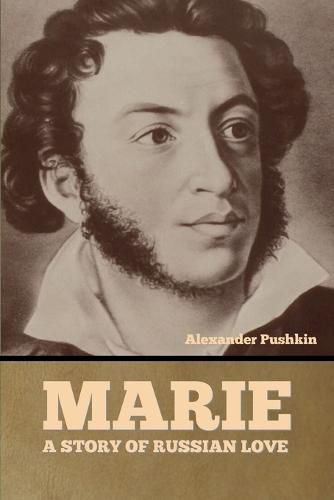Readings Newsletter
Become a Readings Member to make your shopping experience even easier.
Sign in or sign up for free!
You’re not far away from qualifying for FREE standard shipping within Australia
You’ve qualified for FREE standard shipping within Australia
The cart is loading…






This title is printed to order. This book may have been self-published. If so, we cannot guarantee the quality of the content. In the main most books will have gone through the editing process however some may not. We therefore suggest that you be aware of this before ordering this book. If in doubt check either the author or publisher’s details as we are unable to accept any returns unless they are faulty. Please contact us if you have any questions.
Alexander Sergeyevich Pushkin (6 June [O.S. 26 May] 1799 - 10 February [O.S. 29 January] 1837) was a Russian poet, playwright, and novelist of the Romantic era. He is considered by many to be the greatest Russian poet and the founder of modern Russian literature.
Pushkin was born into the Russian nobility in Moscow. His father, Sergey Lvovich Pushkin, belonged to an old noble family. His maternal great-grandfather was Major-General Abram Petrovich Gannibal, a nobleman of Sub-Saharan African origin who was adopted and raised in the Emperor’s court household as his godson. He published his first poem at the age of 15, and was widely recognized by the literary establishment by the time of his graduation from the Tsarskoye Selo Lyceum. Upon graduation from the Lycee, Pushkin recited his controversial poem Ode to Liberty , one of several that led to his exile by Tsar Alexander I. While under the strict surveillance of the Tsar’s political police and unable to publish, Pushkin wrote his most famous play, the drama Boris Godunov. His novel in verse, Eugene Onegin, was serialized between 1825 and 1832.
Pushkin was fatally wounded in a duel with his wife’s alleged lover and her sister’s husband Georges-Charles de Heeckeren d'Anthes, also known as Dantes-Gekkern, a French officer serving with the Chevalier Guard Regiment.
Pushkin is usually credited with developing Russian literature. He is seen as having originated the highly nuanced level of language which characterizes Russian literature after him, and he is also credited with substantially augmenting the Russian lexicon. Whenever he found gaps in the Russian vocabulary, he devised calques. His rich vocabulary and highly-sensitive style are the foundation for modern Russian literature. His accomplishments set new records for development of the Russian language and culture. He became the father of Russian literature in the 19th century, marking the highest achievements of the 18th century and the beginning of literary process of the 19th century. He introduced Russia to all the European literary genres as well as a great number of West European writers. He brought natural speech and foreign influences to create modern poetic Russian. Though his life was brief, he left examples of nearly every literary genre of his day: lyric poetry, narrative poetry, the novel, the short story, the drama, the critical essay and even the personal letter. (wikipedia.org)
$9.00 standard shipping within Australia
FREE standard shipping within Australia for orders over $100.00
Express & International shipping calculated at checkout
This title is printed to order. This book may have been self-published. If so, we cannot guarantee the quality of the content. In the main most books will have gone through the editing process however some may not. We therefore suggest that you be aware of this before ordering this book. If in doubt check either the author or publisher’s details as we are unable to accept any returns unless they are faulty. Please contact us if you have any questions.
Alexander Sergeyevich Pushkin (6 June [O.S. 26 May] 1799 - 10 February [O.S. 29 January] 1837) was a Russian poet, playwright, and novelist of the Romantic era. He is considered by many to be the greatest Russian poet and the founder of modern Russian literature.
Pushkin was born into the Russian nobility in Moscow. His father, Sergey Lvovich Pushkin, belonged to an old noble family. His maternal great-grandfather was Major-General Abram Petrovich Gannibal, a nobleman of Sub-Saharan African origin who was adopted and raised in the Emperor’s court household as his godson. He published his first poem at the age of 15, and was widely recognized by the literary establishment by the time of his graduation from the Tsarskoye Selo Lyceum. Upon graduation from the Lycee, Pushkin recited his controversial poem Ode to Liberty , one of several that led to his exile by Tsar Alexander I. While under the strict surveillance of the Tsar’s political police and unable to publish, Pushkin wrote his most famous play, the drama Boris Godunov. His novel in verse, Eugene Onegin, was serialized between 1825 and 1832.
Pushkin was fatally wounded in a duel with his wife’s alleged lover and her sister’s husband Georges-Charles de Heeckeren d'Anthes, also known as Dantes-Gekkern, a French officer serving with the Chevalier Guard Regiment.
Pushkin is usually credited with developing Russian literature. He is seen as having originated the highly nuanced level of language which characterizes Russian literature after him, and he is also credited with substantially augmenting the Russian lexicon. Whenever he found gaps in the Russian vocabulary, he devised calques. His rich vocabulary and highly-sensitive style are the foundation for modern Russian literature. His accomplishments set new records for development of the Russian language and culture. He became the father of Russian literature in the 19th century, marking the highest achievements of the 18th century and the beginning of literary process of the 19th century. He introduced Russia to all the European literary genres as well as a great number of West European writers. He brought natural speech and foreign influences to create modern poetic Russian. Though his life was brief, he left examples of nearly every literary genre of his day: lyric poetry, narrative poetry, the novel, the short story, the drama, the critical essay and even the personal letter. (wikipedia.org)